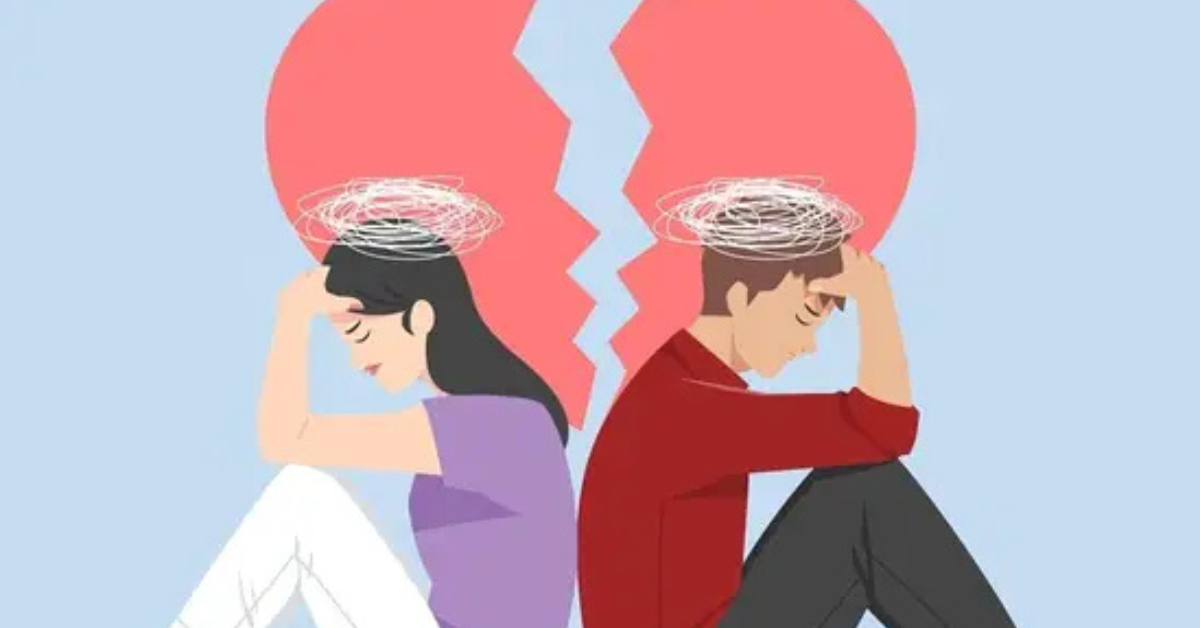Going through a breakup is never easy, but it’s a shared experience that many of us can relate to. As a Dating Guru, I’ve seen countless individuals navigate the rollercoaster of emotions that come after a split. Whether you’re the one who initiated the breakup or you were on the receiving end, the aftermath can leave you feeling a mix of emotions from heartache to relief.
After a breakup, it’s common to find solace in the little things that resonate with your post-breakup journey. From late-night ice cream binges to rediscovering your independence, there are certain aspects of the healing process that are universal. As you embark on this new chapter of your life, you’ll soon realize that there are things you’ll relate to that only those who have been through a breakup can truly understand.
In this article, we’ll explore the relatable moments and emotions that often follow a breakup, shedding light on the shared experiences that remind you that you’re not alone in this journey of healing and self-discovery.
The Rollercoaster of Emotions

Experiencing a breakup can take you on a rollercoaster of emotions. You might find yourself feeling a mix of different feelings, and it’s perfectly normal. Here are some common emotions you may relate to after a breakup:
- Sadness: You may feel a deep sense of sadness after a breakup. It’s okay to grieve the loss of the relationship and allow yourself to feel this emotion fully. Remember, it’s a natural part of the healing process.
- Anger: Feeling angry is another common emotion post-breakup. You might be angry at your ex-partner, yourself, or even the situation. Allow yourself to acknowledge and process this anger in a healthy way.
- Confusion: Breakups can often leave you feeling confused and unsure about the future. It’s normal to question what went wrong and what your next steps should be. Take your time to navigate through this confusion at your own pace.
- Relief: Surprisingly, a sense of relief can also accompany a breakup, especially if the relationship was strained. Feeling relieved doesn’t negate the other emotions you may be experiencing; it’s just another facet of the healing process.
- Loneliness: It’s common to feel lonely after a breakup, especially if you were used to sharing your life with someone. Remember that it’s okay to be alone and that this is a valuable time for self-discovery.
- Hope: Despite the pain, breakup can also bring a sense of hope for the future. Embrace this optimism and look forward to new beginnings and opportunities that lie ahead.
Navigating through these emotional ups and downs can be challenging, but remember that it’s all part of the healing process. Allow yourself to feel these emotions fully, seek support from loved ones, and above all, be kind to yourself as you embark on this journey of self-discovery.
Rediscovering Yourself

After a breakup, you have the opportunity to rediscover yourself and embark on a journey of self-reflection and growth. Here are some ways you can navigate this period of self-discovery:
- Understanding Your Identity: Take this time to reflect on who you are as an individual outside of the relationship. Explore your likes, dislikes, interests, and values. Rediscover the qualities that make you unique and embrace them.
- Setting Personal Goals: Use this period to set new personal goals and aspirations. Whether it’s pursuing a new hobby, learning a skill, or focusing on your career, setting goals can help you move forward with purpose and direction.
- Embracing Change: Understand that growth often stems from change. Embrace the changes happening in your life post-breakup as opportunities for personal development and self-improvement.
- Practicing Self-Care: Prioritize self-care during this time. Engage in activities that nourish your mind, body, and soul. Whether it’s meditating, exercising, or spending time with loved ones, taking care of yourself is essential for personal growth.
- Learning From the Experience: Reflect on the lessons learned from the breakup. Identify areas where you can grow and improve as a result of this experience. Use these insights to shape your future relationships and personal development.
- Seeking Support: Don’t hesitate to seek support from friends, family, or a therapist during this process of self-reflection and growth. Talking to others can provide valuable insights and emotional support as you navigate this transformative period.
By embracing self-reflection and focusing on personal growth, you can emerge from this challenging time with a deeper understanding of yourself and a newfound sense of strength and resilience. Remember, this journey of rediscovery is an opportunity to prioritize your well-being and chart a path towards a more fulfilling and authentic life.
Coping with Loneliness

After a breakup, you might find yourself facing moments of solitude that can be overwhelming. It’s important to acknowledge and address these feelings of loneliness in healthy ways to aid in your healing process. Here are some effective strategies to help you cope with loneliness during this challenging time:
- Stay Connected: While solitude may feel inevitable, it’s crucial to stay connected with friends and family. Surrounding yourself with loved ones can provide comfort, support, and a sense of belonging that can help alleviate feelings of isolation.
- Engage in Activities: Keeping yourself busy with activities you enjoy can distract you from loneliness. Whether it’s diving into a new hobby, exercising, or volunteering, staying active can boost your mood and prevent feelings of emptiness.
- Practice Self-Care: Taking care of yourself is paramount during this period. Prioritize self-care activities such as meditation, a relaxing bath, or treating yourself to something you love. Nurturing your well-being can help combat loneliness and promote emotional healing.
- Seek Professional Help: Don’t hesitate to reach out to a therapist or counselor if feelings of loneliness become overwhelming. Speaking to a professional can provide you with guidance, coping strategies, and a safe space to express your emotions.
- Embrace Solitude: While it’s essential to stay connected, embracing moments of solitude can also be beneficial. Use this time for self-reflection, introspection, and personal growth. Discovering peace within yourself can diminish feelings of loneliness.
- Join Support Groups: Consider joining support groups or online communities where you can connect with others who are going through similar experiences. Sharing your feelings with individuals who understand can offer a sense of camaraderie and lessen feelings of isolation.
- Limit Social Media Use: Social media can sometimes exacerbate feelings of loneliness by fostering comparisons and unrealistic expectations. Limit your social media consumption and focus on real-life interactions to nurture genuine connections.
Remember, feeling lonely after a breakup is a common experience, and it’s essential to be gentle with yourself as you navigate through this emotional phase. By implementing these coping strategies, you can effectively manage feelings of loneliness and embark on a journey of healing and self-discovery.
Reconnecting with Friends and Family

After a breakup, reconnecting with friends and family is crucial for your healing process. It offers you a strong support system and helps you feel less isolated during this challenging time. Here are some key ways to nurture these relationships:
- Initiate Open Conversations: Reach out to your close friends and family members. Share your feelings and thoughts with them honestly. Opening up can help alleviate the emotional burden you may be carrying.
- Plan Social Outings: Organize gatherings or outings with your loved ones. Spending quality time together can uplift your mood and distract you from negative thoughts associated with the breakup.
- Join Group Activities: Engage in group activities or hobbies with friends or family members. This can foster a sense of community and belonging, providing you with a positive environment to navigate through your emotions.
- Seek Emotional Support: Lean on your support network for emotional support. Whether it’s a listening ear or words of encouragement, their presence can offer immense comfort and reassurance.
- Express Gratitude: Show appreciation for the people who stand by you during this challenging period. Acknowledging their support can strengthen your relationships and create a deeper bond with them.
- Set Boundaries: While reconnecting with loved ones is vital, it’s also essential to set boundaries to protect your emotional well-being. Communicate your needs clearly and respect your own space and time for self-care.
- Celebrate Milestones Together: Share your achievements and milestones with your friends and family. Celebrating milestones together can create moments of joy and help you focus on the positive aspects of your life.
By rekindling connections with your friends and family, you can find solace, laughter, and companionship as you navigate the post-breakup phase. Remember, you are not alone, and your loved ones are there to support you through this journey of healing and self-discovery.
Embracing Change

After a breakup, embracing change is a vital aspect of your healing and growth journey. It’s natural to resist change, but it’s essential to understand that change can lead to positive outcomes in your life. Here are some ways you can embrace change and navigate this transformative period:
- Reflect on Your Identity:
Reflecting on who you are outside of the relationship can be empowering. Rediscover your interests, passions, and values. Understanding yourself better can help you build a stronger sense of self and direction. - Set New Personal Goals:
Setting new goals for yourself can give you a sense of purpose and direction. Whether it’s picking up a new hobby, advancing in your career, or focusing on personal development, setting goals can help you move forward with clarity. - Embrace Growth Opportunities:
Viewing change as an opportunity for personal growth can shift your perspective. Embrace challenges as chances to learn and evolve. Stepping out of your comfort zone can lead to new experiences and self-improvement. - Prioritize Self-Care:
Self-care is crucial during this period of change. Take time to nurture your physical, emotional, and mental well-being. Engage in activities that bring you peace and joy. Prioritizing self-care can help you navigate change with resilience. - Seek Support:
Seeking support from friends, family, or a therapist can provide valuable comfort and guidance. Opening up about your feelings and experiences can help you process emotions and gain new insights. Surround yourself with a supportive network to aid in your journey of change. - Learn from the Experience:
Reflect on the lessons learned from the breakup. Every experience, even challenging ones, can offer valuable insights. Use this opportunity to grow stronger, wiser, and more self-aware. Learning from the past can guide you towards a brighter future.
Embracing change after a breakup may feel daunting, but it can also lead to personal transformation and newfound opportunities. By embracing change, you allow yourself to heal, grow, and create a life that aligns with your authentic self. Remember, change is a constant part of life, and navigating it with a positive mindset can pave the way for a brighter tomorrow.
Conclusion
Navigating through the emotional rollercoaster of a breakup is a challenging yet transformative journey. It’s normal to experience a mix of feelings like sadness, anger, and hope post-breakup. Remember, allowing yourself to feel these emotions is essential for healing. Embrace the opportunity for self-discovery and personal growth during this time. Prioritize self-care, seek support from loved ones, and be open to change. By reflecting on the breakup experience, you can gain valuable insights into yourself and pave the way for a brighter future. You’re not alone in this journey; stay resilient and embrace the path to a more fulfilling life.
Frequently Asked Questions
What are some common emotions people experience after a breakup?
After a breakup, individuals may feel sadness, anger, confusion, relief, loneliness, and hope as part of the healing process.
How can someone cope with feelings of loneliness post-breakup?
To cope with loneliness after a breakup, it’s helpful to stay connected with loved ones, engage in enjoyable activities, practice self-care, seek professional help if needed, embrace solitude for self-reflection, and join support groups for connection.
Why is reconnecting with friends and family important during the healing process?
Reconnecting with friends and family provides emotional support, fosters open conversations, helps plan social activities, and establishes boundaries for emotional well-being, leading to joy and positivity.
How can embracing change contribute to healing and personal growth post-breakup?
Embracing change by reflecting on personal identity, setting new goals, prioritizing self-care, and seeking support from a network of people can lead to self-awareness, personal growth, and a brighter future after a breakup.

